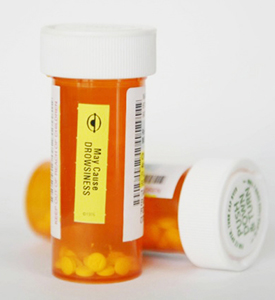
Amid the nation’s ongoing and “unprecedented opioid epidemic”, (per the U.S. Department of Health and Human Services), on June 8, 2017, the U.S. Food and Drug Administration requested Endo Pharmaceuticals to voluntarily remove its opioid pain medication, reformulated Opana ER (oxymorphone hydrochloride), from the market. The request was based on concerns that the benefits of the drug no longer outweigh its risks related to abuse. This is the first time the FDA has taken steps to remove a currently marketed opioid pain medication due to the public health consequence of abuse.
Opana ER is an opioid first approved in 2006 for the treatment of moderate to severe pain when a continuous, around-the-clock opioid analgesic is deemed necessary. In 2012, Opana ER was reformulated to deter snorting and injecting. While the new product met the FDA’s standards for approval, based on new information about the risks associated with the reformulated product, the agency is now taking steps to remove Opana ER from the market.
Janet Woodcock, M.D., Director of the FDA’s Center for Drug Evaluation and Research, indicated, “The abuse and manipulation of reformulated Opana ER by injection has resulted in serious disease outbreak. When we determined the product had dangerous unintended consequences, we made a decision to request its withdrawal from the market. This action will protect the public from further potential misuse and abuse of this product.”
The FDA requested the manufacturer, Endo International, voluntarily remove reformulated Opana ER from the market. In another first, Endo has announced its plan to voluntarily comply with the FDA’s request. In a July 6, 2017 press release, Endo announced plans to work with the FDA to coordinate the orderly removal of the pain medication, “in a manner that looks to minimize treatment disruption and allows patients sufficient time to seek guidance from the health care professionals.”
The FDA has indicated it will continue to examine the risk-benefit profile of all approved opioid analgesic products and take further actions as appropriate as part of its response to the opioid public health crisis. For further information, read the FDA News Release.
What can you do to help manage the chronic prescription of opioids or narcotics on your claims?
• Obtain an independent medical evaluation if:
1. Opioids are prescribed for complaints of pain and there are inconsistencies in the diagnosis and objective findings;
2. There is no reported reduction in pain levels with ongoing prescription of opioids or narcotics;
3. There is no demonstrable improvement in function, including return to work, with ongoing prescription of opioids or narcotics;
4. Abuse, addiction, or deviation is suspected.
• Colorado’s Medical Treatment Guidelines address the appropriate use of Narcotics/Opioids in workers’ compensation claims including the following recommendations:
1. Screening for potential alcohol and drug abuse problems, as well as co-morbid psychiatric conditions, to identify those claimants who may be prone to dependence or abuse;
2. Long-term narcotics or opioids should only be offered after other therapies have failed to improve function;
3. Narcotics or opioids should result in demonstrable improvements in function, not just reported pain relief;
4. Random urine drug screens are required by the Guidelines for the chronic prescription of opioids or narcotics;
5. A narcotic pain contract, and compliance therewith, is required by the Guidelines for long term prescription of opioids or narcotics;
6. Periodic re-evaluation of function and side-effects is required for ongoing narcotic or opioid prescriptions;
7. Tapering and discontinuance of opioid or narcotic prescriptions are required when patient goals are not being met.
• Medical Utilization Review:
Provides a statutory, tiered, neutral medical review of the reasonableness and necessity of an authorized treating provider’s care, including the prescription of narcotic and opioid medications.
If you have any questions about challenging the ongoing prescription of narcotics or opioid pain medications, or any claim-related medical treatment, please contact us. We are always glad to discuss the facts of your case and work towards the most efficient way to end unreasonable, unnecessary, and/or unrelated medical treatment.



